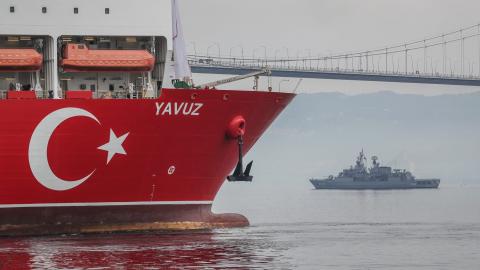Why Turkey is Dialing Down Tensions in East Med

Turkey and Greece resumed their exploratory talks after a five-year break on January 25. Resuming the talks after such a long break was received positively by many international actors as a sign of de-escalation in the Eastern Mediterranean.
Deciding to reopen diplomatic channels is an important improvement to peace and the stability in the region. However, the balance remains fragile and where these talks will lead is still not clear.
The parties started the talks in 2002 to discuss the delimitation of maritime zones in the Aegean and develop confidence-building measures. They met 60 times until March 2016 but the dialogue on finding solutions to current disputes lost momentum after the failed coup attempt in Turkey in 2016. Even though exploratory talks would not necessarily lead to a final resolution of the region's disputes, former Greek prime minister Alexis Tsipras confirmed in February 2019 that talks "came very close to a solution".
The parties reconvened on January 25 in Istanbul and the next round of talks is planned to take place in Athens. Before the meeting, however, Turkey announced a new NAVTEX for its survey vessel, the Oruç Reis, in the Gulf of Antalya in December 2020 until June 2021. This was a concerning gesture by Ankara, as the same vessel was escorted by the Turkish navy in the disputed waters earlier - and caused an escalation of tension between Greece and Turkey.
Although the agenda for the talks was not officially revealed by either party, Turkish media stated that Turkey was again prepared to bring disputes both over the Aegean and the Eastern Mediterranean to the table in a package. This would include demilitarization of the Aegean islands, delimitation of territorial waters, airspace and the...
- Log in to post comments










